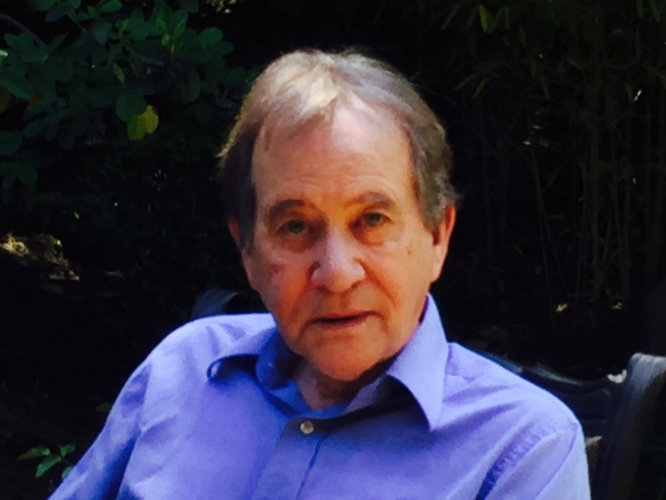

|
Alva Henderson (b. 1940) entered San Francisco State College as a Drama major, but after several years changed to a major in Composition with voice as his principal instrument. He studied composition with Wayne Peterson (SF State) and Robert Sheldon (SF Conservatory). Before leaving the college in 1966 to pursue a career in music, he presented a complete recital of original works. During the following four years he completed his first opera Medea while supporting himself by singing in the San Francisco Opera Chorus. The 1972 production of Medea by the San Diego Opera with Metropolitan Opera star Irene Dalis in the title role brought him to national attention. A commission from Opera Delaware to create an opera for the American Bicentennial and for the gala reopening of the restored Grand Opera House in Wilmington followed, and The Last of the Mohicans was premiered there in 1976. The production was met with much critical success, acclaimed by Opera News for its “a pulsing sense of melody and stirring emotional commitment.” The following year the work was produced by the Lake George Opera Festival, and broadcast throughout the country on National Public Radio. Among his other compositions are the operas West of Washington Square, premiered by Opera San José in 1988, Achilles (unproduced), the cantata The Ancient Ones, premiered by the Schola Cantorum in 1983, and a dramatic musical, Far From the Madding Crowd. In June of 1998, Henderson was composer-in-residence at the Western Slope Summer Music Festival. One hour of excerpts from his opera Nosferatu were performed (with full orchestra conducted by Imre Pallo) to great acclaim. In June of 2004, Schola Cantorum, a San Francisco Bay area chorus of 140 voices gave the premiere of Winter Requiem, with poems by Dana Gioia. The work was performed at St. Joseph’s Church in San José, and in San Francisco at St. Ignatius Church. Also in 2004, Henderson’s opera Nosferatu, with libretto by Dana Gioia (after the film by F. W. Murnau) was given its world premiere first at by the Rimrock Opera in Billings, Montana, followed by performances in by Opera Boise in Boise, Idaho. Henderson has written many songs, song cycles, and choruses, as well as incidental music for Twelfth Night and The House of Bernarda Alba and Much Ado About Nothing. Recitals of his music have been performed at the Kaiser Center in Oakland, California, the Burlingame Music School, The San Francisco Conservatory of Music, The Renee Weiler Concert Hall in New York City, and Mercer University in Macon Georgia. In celebration of his 70th birthday, a recital of 26 of his art songs was performed at the Tateuchi Recital Hall in Mountain View in April 2010. Mr. Henderson has been a Fellow at Yaddo, and The Djerassi Foundation, and Distinguished Artist in Residence at San José State University. He makes his home in Mountain View, California with his spouse, Bear Capron –Alva Henderson (Christie Finn, ed.) |
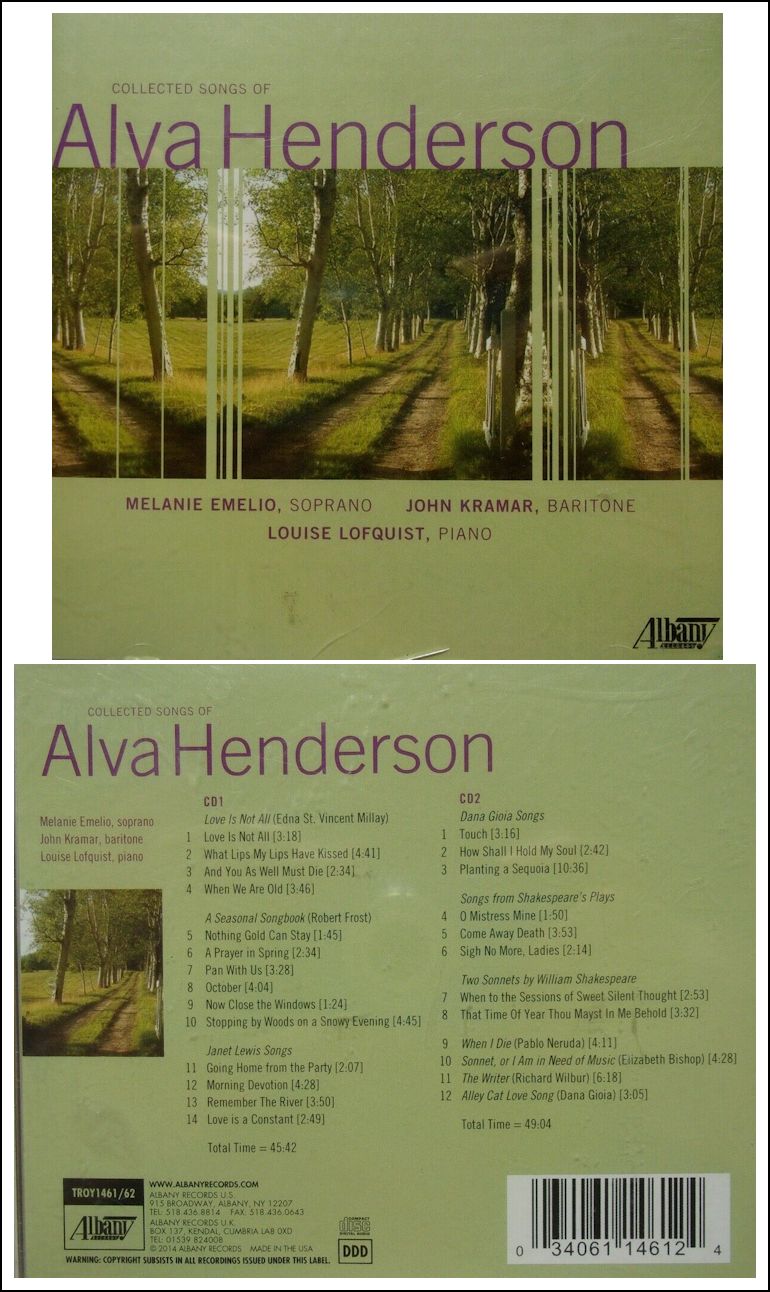

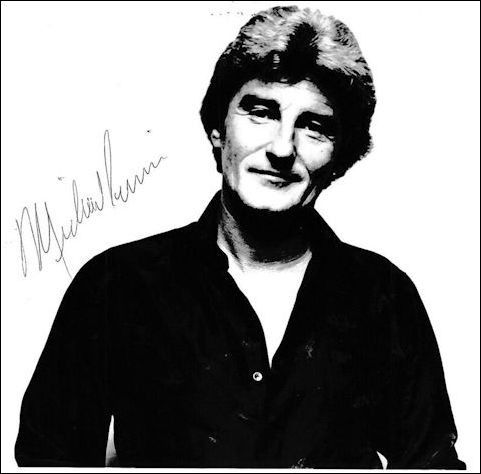
Michael Smuin (October 13, 1938 – April 23, 2007) was an American ballet dancer, choreographer and theater director. He was co-founder and director of his own dance company, the Smuin Ballet in San Francisco. Born in Missoula, Montana, Smuin was a principal dancer with the American Ballet Theatre and the San Francisco Ballet, for which he served as co-artistic director from 1973 through 1985. There he produced over 25 ballets, including Romeo and Juliet, The Tempest, and A Song for Dead Warriors, all of which were featured on the PBS series Great Performances - Dance in America. On Broadway, he directed Sophisticated Ladies, and made his television directing debut with Suites by Michael Smuin (excerpts from his To The Beatles, Stravinsky Piano Pieces, and Songs of Mahler), as well as Lew Christensens Jinx, which were taped in the KQED-TV studios in May of 1984. In 1994 he founded Smuin Ballet. He also choreographed for the Dance Theatre of Harlem, Washington Ballet, Pacific Northwest Ballet, and Milwaukee Ballet. |
|
He was born Walter Seligmann in Frankfurt, and studied composition under Arnold Schönberg in Vienna. He gained experience as conductor in Germany and Switzerland, and was later appointed chief conductor at the Vienna Volksoper (1931–38). His operatic debut was with Carmen, at the Stadttheater Bern in 1925. Shortly before the 1938 Anschluss (annexation of Austria into the German Reich), Herbert visited Japan to introduce modern western classical music to that country. From there he migrated to the United States, and became an American citizen in 1944. Herbert was director of Opera in English (San Francisco, 1940–43); and in 1943 was appointed the first general director of the New Orleans Opera Association, which post he held until 1954. He founded the Houston Grand Opera in 1955, where he remained as both general director and conductor until 1972; and was music director of Opera/South (founded by Sister M. Elise Sisson, SBS) in Jackson, Mississippi. He founded the San Diego Opera in 1965, and was its general director and conductor from 1969 until his death. |
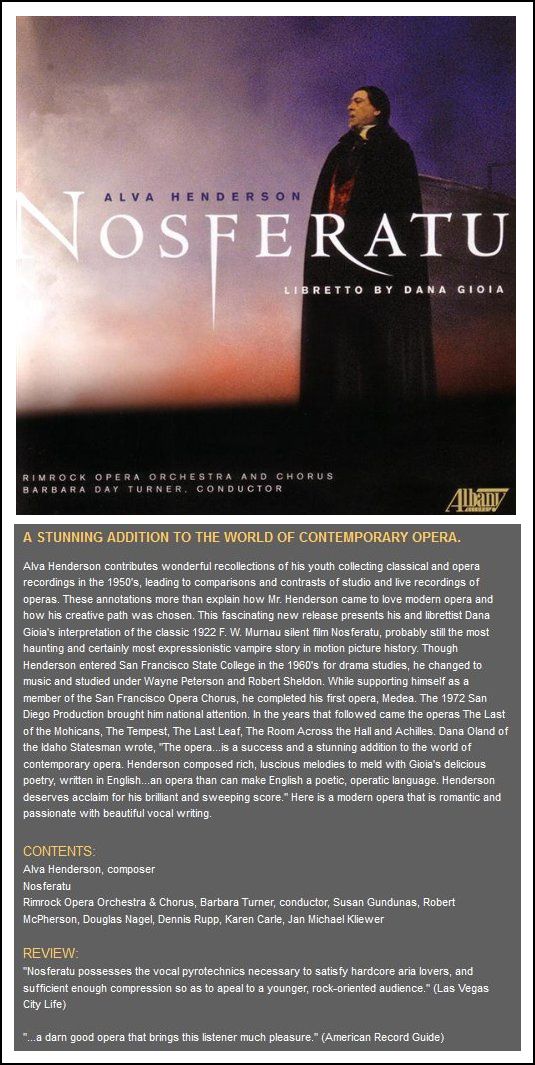
|
Lake George Opera, now Opera Saratoga, began with a production of Die Fledermaus at the Diamond Point Theatre on July 5, 1962, playing to an audience of 230 people. The company now calls Saratoga Springs home and performs for more than 25,000 people annually. To date, the company has performed 90 different fully staged works by 52 different composers, including 33 works by American composers and 10 premiere productions. Throughout its history, the company's continued success has been shaped by visionary leaders, talented artists, and critically acclaimed productions. Fred Patrick, with his wife soprano Jeanette Scovotti, established the company in Lake George, seeking a permanent seasonal repertory company that presented opera in English and showcased young, talented American singers. An ambitious first season included 46 performances in eight weeks, fully staged, with two pianists providing accompaniment. Growing audiences and performances with orchestra quickly followed, and in 1965, the Opera moved to the newly completed auditorium at the Queensbury High School in Glens Falls. That year also saw the formation of the company's first Board of Directors and the loss of Fred Patrick to cancer at just 37 years old. Then current artistic director, David Lloyd was appointed general director, a post he held until 1980. During Lloyd's tenure, the company gave its first contemporary and American operas, Menotti's The Telephone in 1965 and Robert Ward's The Crucible in 1966, and four world-premiere productions: David Amram's Twelfth Night and Robert Baksa's Aria da Capo, both in 1968, The Child by José Bernardo in 1974, and Alva Henderson's The Last of the Mohicans in 1977. He formed the Contemporary American Opera Studio in 1980 and introduced Opera-on-the-Lake in 1972. [Other American operas presented include works by Dominick Argento, Michael Ching, Carlisle Floyd, Douglas Moore, Lee Hoiby, Kirk Mechem, William Schuman, and Virgil Thomson.] From 1981 through 1985, Paulette Haupt-Nolen served as artistic director, initiating collaborations with the Eugene O'Neill Theater Center to workshop new operas and Proctor's Theatre for a production of Man of La Mancha. She produced the company's first opera at the Spa Little Theater in Saratoga Springs, the world premiere of The Adventures of Friar Tuck by Glenn Paxton, and introduced the traveling Opera-On-Wheels Program in 1985. The late 1980s welcomed artistic directors Brian
Lingham (1986-87) and John Balme (1988-91), inaugurated the Opera-to-Go
education program in 1986, and saw the world premiere of Mark Houston's
Hazel Kirke, an opera set in the Hudson River Valley in the
1840s. The 1989 and 1990 seasons were performed at Adirondack Community
College, while the Queensbury High School Auditorium underwent renovations. Well-known
singers who performed with the company early in their careers include Catherine Malfitano,
Diana Soviero, Eric Halfvarson,
and Jerry Hadley. In 1991, Susan T. Danis was appointed to the newly established post of managing director and the company returned to Queensbury. 1993 was a transitional year, with David Lloyd returning as interim artistic director, and during which the Opera featured many alumni in three gala concerts, but performing no fully staged productions. Joseph Illick became artistic director for the next five summers, programming a variety of works that included Rossini's La Donna del Lago, Massenet's Cendrillon, Jorge Martin's Tobermory, Richard Wargo's The Music Shop, and Britten's A Midsummer Night's Dream, the latter featuring the Boys Choir of Harlem as the Spirits in the Forest. 1998 brought major changes for Lake George Opera. Due to renovations at the Queensbury High School, the Company performed its summer season in the Spa Little Theater on the grounds of Spa State Park in Saratoga Springs. The 500-seat theater proved a perfect venue for intimate opera, and though the move was initially intended to be temporary, it has remained the company's main performance space since then. In 1998, the company also began performing operas in their original languages with projected supertitles. In 1999, the company hired conductor Daniel Beckwith and stage director Marc Verzatt as co-artistic directors. Shortly thereafter, William Florescu joined the company as artistic director. The new team established a brand of intimate opera theater that would characterize the company’s productions going forward. Important projects during this period included notable productions of Ariadne auf Naxos in the Spa Little Theater, Madama Butterfly in partnership with the Saratoga Performing Arts Center in SPAC's outdoor amphitheater, and the initiation in 2000 of a five-year Opera-to-Go education tour cycle of operas by John Davies. In 2002, William Florescu assumed both executive and administrative leadership responsibilities. During the next three years, he reintroduced American operas into the repertory, showcased Apprentice Artists in concert programs with orchestra, initiated the Lake George Opera Summer Camp, and, along with event Chairs Ted and Carol Newlin, initiated the company's annual Opera Ball. In 2005, Florescu moved to the Florentine Opera in Milwaukee, and Curtis Tucker became the company's eighth artistic director. In 2006, Tucker guided an expanded summer season that included the professional premiere of Ned Rorem's Our Town and a semi-staged Apprentice Artist performance of Menotti's The Medium. Tucker served in leadership roles for the company for nine seasons, overseeing the 50th season in 2011, and the formal name change to Opera Saratoga that same season. Among the successes of Tucker’s tenure were many critically acclaimed performances of works by Gilbert and Sullivan. In 2014, the Board of Directors appointed Lawrence Edelson as the new artistic and general director. Highlights of Edelson’s tenure included the world premieres of Jeremy Howard Beck and Stephanie Fleischmann’s The Long Walk and Ricky Ian Gordon and Frank Bidart’s Ellen West; the company’s first baroque opera (Purcell’s Dido and Aeneas, in a site-specific production at The National Museum of Dance); the company’s first opera in Spanish (Daniel Catán’s Il Postino); the American premiere of Philip Glass and Beni Montresor’s opera-ballet, The Witches of Venice; and the 80th Anniversary production of Marc Blitzstein’s The Cradle Will Rock, which utilized the composer’s original orchestration for the first time anywhere in the world in over 50 years, and was recorded for commercial release – marking Opera Saratoga’s first professional recording. In 2020, Opera Saratoga was forced to cancel the Summer Festival due to the COVID-19 pandemic. The company adapted its programming to include the launch of a virtual education program for elementary school students, and a live streamed concert series – America Sings – to amplify the voices of BIPOC singers who have been historically underrepresented on the concert stage. In 2021, the company resumed live performances with a modified season that included Man of La Mancha, its first large scale musical in partnership with the Saratoga Performing Arts Center. The 2022 season built upon this partnership by joining with multiple venues across the region to present a region-wide festival of opera, musical theater and concerts. At the conclusion of the 2022 Summer Festival, Edelson stepped down as artistic and general director to join the University of Houston as interim Artistic Director of the Moores Opera Center, before joining Chicago Opera Theater as General Director in 2023. The company conducted a national search for Edelson’s successor and named Mary Birnbaum as the next artistic and general director in February of 2023. == (Mostly) from their official website
|
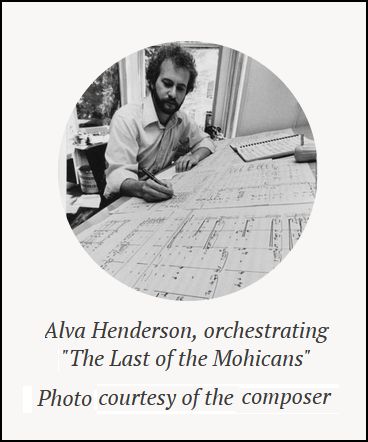
© 1987 Bruce Duffie
This conversation was recorded on the telephone on April 22, 1987. Portions were broadcast on WNIB in 1990. This transcription was made in 2023, and posted on this website at that time.
To see a full list (with links) of interviews which have been transcribed and posted on this website, click here. To read my thoughts on editing these interviews for print, as well as a few other interesting observations, click here.
Award - winning broadcaster Bruce Duffie was with WNIB, Classical 97 in Chicago from 1975 until its final moment as a classical station in February of 2001. His interviews have also appeared in various magazines and journals since 1980, and he now continues his broadcast series on WNUR-FM, as well as on Contemporary Classical Internet Radio.
You are invited to visit his website for more information about his work, including selected transcripts of other interviews, plus a full list of his guests. He would also like to call your attention to the photos and information about his grandfather, who was a pioneer in the automotive field more than a century ago. You may also send him E-Mail with comments, questions and suggestions.